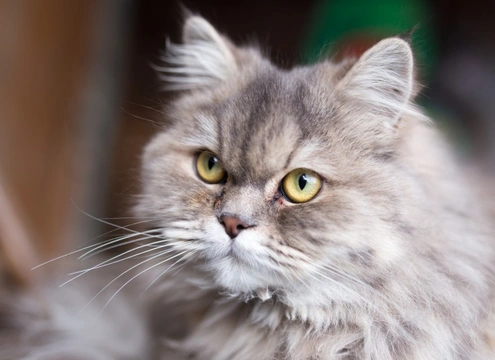
Four surprisingly innocuous foodstuffs that are poisonous to cats
When it comes to dogs, there is a seemingly never ending and continually growing list of things that are poisonous to them, and dogs are of course not very discerning about what they eat, and will often eat things that are potentially dangerous or at least, unpalatable!
However, the list of dangerous foods for cats is rather shorter in terms of those that you should know about, which is not so much because less things are dangerous for cats, but because cats are much more speculative about what they eat. While a dog may think nothing of wolfing down a whole chocolate cake if they are left unsupervised around it, cats are highly unlikely to do the same-but chocolate is still nonetheless toxic to cats, just like it is for dogs.
In this article, we will share four other surprisingly innocuous foodstuffs that are actually poisonous to cats, and that your cat might eat under certain situations if given the opportunity. Read on to learn more.
Mushrooms
Everyone knows that some species of mushrooms are toxic to humans, and that you should never pick and eat unusual mushrooms that you spot out and about. However, even innocuous mushroom species that are totally safe for people and that you can buy in the supermarket are poisonous to cats, and you should ensure that they don’t get hold of any!
While a cat is of course highly unlikely to deliberately eat a mushroom that is either raw or cooked, bear in mind that we often cook things like stews and casseroles with meat and gravy including mushrooms. Mushroom sauces that are cream or gravy based may be tempting to cats, and if your cat is really keen to get to the scraps of your food, they may eat mushrooms in gravy or with meat without realising it.
Baby food
Baby food might seem like one of the most bland, safe and innocuous foodstuffs out there-after all, we feed it to very young children! But essentially, baby food is just a pureed and/or slightly blander form of the types of food that adults eat, fed in order to get babies used to eating solids and trying different flavours.
Because baby food is pureed and mixed, you cannot often tell exactly what is in it, and lot of savoury dishes for babies will include things like onions and garlic (toxic to cats as well as dogs) mushrooms, and other ingredients that are unsafe.
Grapes and grape products
Yet another common poison for both dogs and cats are grapes, and products produced from grapes, such as raisins and sultanas. Once again, a cat is highly unlikely to decide they want to try a grape or raisin on its own, but if it is mixed into something nice-like yoghurt, or something else creamy-they may consume them without realising, as it is masked by the taste of the other product.
Certain types of dairy products
Finally, cats love milk, cream and dairy products of all types-this may extend to products that you may not think of, such as mayonnaise! Mayonnaise often contains garlic powder, and if so, you should keep it well away from your cat. Milk and cream themselves are not poisonous to cats per se, but cow milk such as we commonly keep in the fridge is too rich and too high in lactose for cats, and cause digestive upsets and diarrhoea.
Additionally, milkshakes and other products that involve flavouring milk can also potentially be a problem. Chocolate flavoured milk may contain a chocolate substitute, but it may also be made with real chocolate, and/or artificial sugar substitutes, such as Xylitol, which is toxic to both dogs and cats.
Other products such as brandy butter, and anything else that contains a dairy base with flavouring or other ingredients should be kept well away from your cat, in case of potential risks.
Keeping cats safe
While all of the above foods might seem like odd choices that cats are highly unlikely to attempt to eat or get sick from, all of these foodstuffs are items that one or more cats have been treated in veterinary clinics for over the last year, and so a risk does exist.
It is important that you always think before offering your cat a taste of something that you are eating, and not to get them used to begging, scrounging or stealing your food! It is also unwise to leave anything meat or dairy based sitting out unsupervised when your cat is around, because they will often go to great lengths to work out how to get hold of something that they shouldn’t!
If you have any doubts about a certain food or you think your cat may have ingested something toxic or dangerous to them, speak to your vet immediately for advice.



